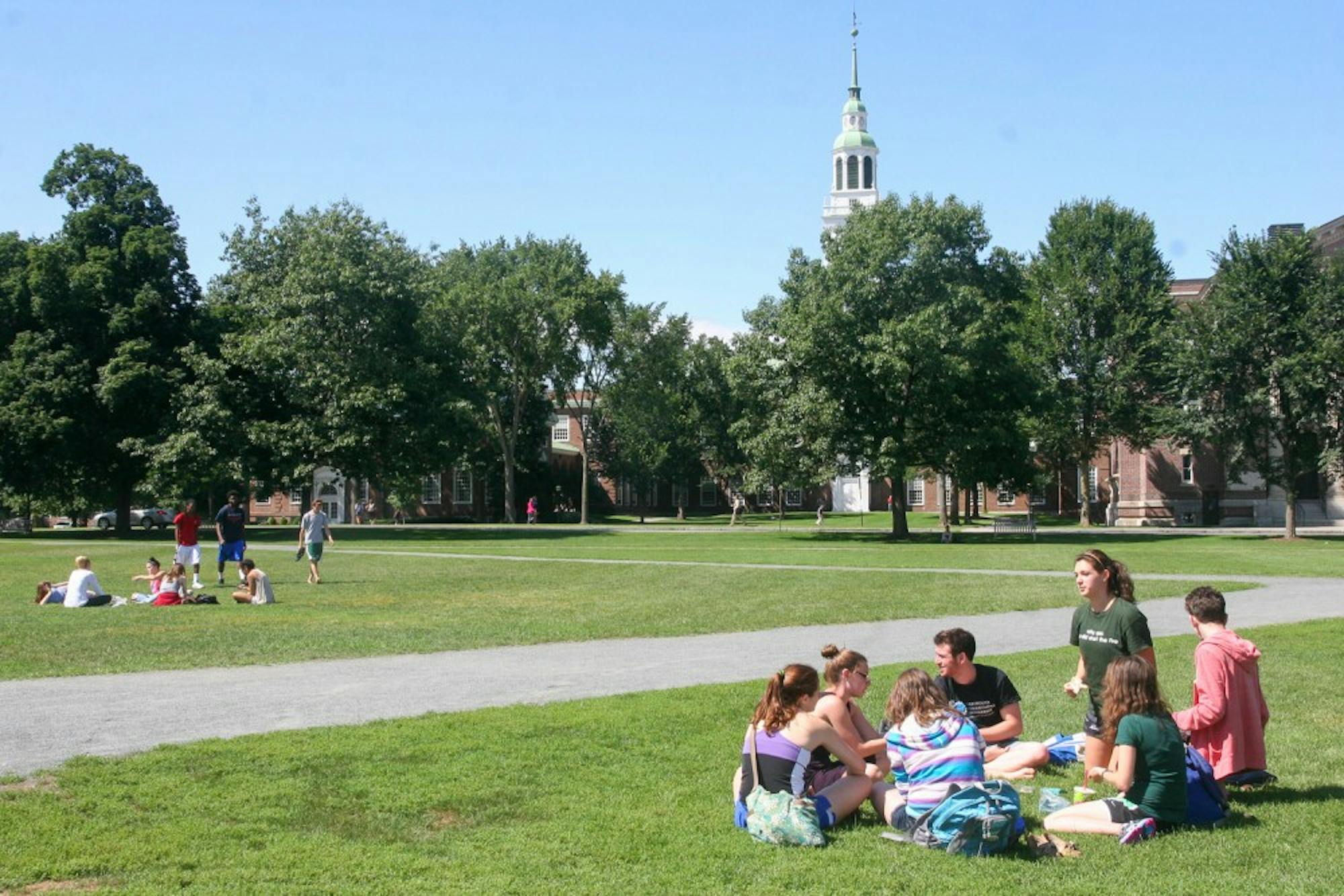The Committee on Student Safety and Accountability released its final report recommending goals for mitigating problems ranging from residential life to campus climate issues on Thursday afternoon. COSSA was established by former College President Jim Yong Kim in February 2012 to examine issues of sexual assault, hazing and binge drinking.
Dean of the College Charlotte Johnson and biology professor Rob McClung, both committee co-chairs, sent an email to campus, soliciting feedback on the proposed recommendations. The committee submitted its recommendations to College President Phil Hanlon this past summer.
Recommendations were made in residential life, curricular investment, campus climate, faculty and staff, the College’s judicial system, Committee on Standards sexual misconduct hearing board, accountability for students found responsible for sexual assault and the Brief Alcohol Screening and Intervention for College Students program.
The committee recommended developing pilot programs that would allow students to maintain continuity in their residence halls. It also wanted to further develop the integrated learning communities available through partnerships between faculty and staff.
“I think that would be a great idea, if you could connect more with the people in your building,” East Wheelock cluster undergraduate advisor Tiffany Wang ’16 said. “I think that builds a lot more community. That would definitely be a plus.”
The committee encouraged faculty to develop courses that incorporate community expectations. It also suggests creating a class that addresses Dartmouth’s community values. Mathematics professor Alex Barnett said he supports the development of such a course.
“It’s rather vague in the report, but it happens in other colleges,” Barnett said. “I think the course should include training about gender relations, inequity, social justice and values.”
The committee wishes to perform research on how diversity and other factors contribute to campus climate. COSSA found that the Dartmouth community has impassioned and conflicting views on the role of Greek organizations on campus, and that furthering its research will help leadership choose the best course action.
The committee recommended training of faculty and staff in motivational interviewing to aid in their academic and personal advising. The committee also suggested providing information on student life and community expectations in new employee orientation.
“I think some faculty would be happy to do this training, and others will resist and say that this is beyond our job description,” Barnett said.
COSSA affirmed that the judicial system had undergone extensive review and is implementing changes to make its practices more effective. The committee identified that students would benefit from a Frequently Asked Questions forum because the logistics of the judicial process are not well understood in the community. It also suggests publishing reports of judicial outcomes in a more timely manner.
The report suggested that the Committee on Standards sexual misconduct hearing board ensure a consistent selection process of faculty, staff and student members. It also recommended further enhancing the appropriate training for handling cases of sexual assaults.
The committee wrote that the current sexual misconduct policy should clearly state that sexual offenders will be removed from the College. A recurrent complaint about the system is that sexual assault survivors constantly encounter their perpetrators on campus. The committee proposes that students found guilty of sexual assault should be separated from the College until the victim graduates.
“[Dartmouth] on paper it has all of these support systems, but if you actually follow the experience of individual student victims then it doesn’t add up to any support,” Barnett said. “Often, they have to confront their rapist. They have no legal support and they are essentially abandoned by the system. The whole system doesn’t support students coming forward and being treated well.”
Student and Presidential Committee on Sexual Assault chair William Scheiman ’14 said he was happy to see that recommendation in the report.
“I think that we can go a little further and, as outlined in the 2013 SPCSA recommendation, mandate separation — expulsion — for students found responsible,” Scheiman said in an email.
Research conducted by COSSA revealed that BASICS participants showed a dramatic decrease of alcohol consumption within the first 90 days of intervention. Due to this perceived success, COSSA recommended to extend this kind of intervention into other areas such as the Greek community, foreign study programs and undergraduate advisors.
The committee consists of 12 members divided among faculty, students and staff. It consulted various resources and reviewed current Dartmouth data on trends such as sexual assault and binge drinking, and received input from the SPCSA, Sexual Abuse Awareness Program coordinators Amanda Childress and Rebekah Carrow, among others.
The report does not address specific implementation strategies, which will be developed by the College’s various departments.




